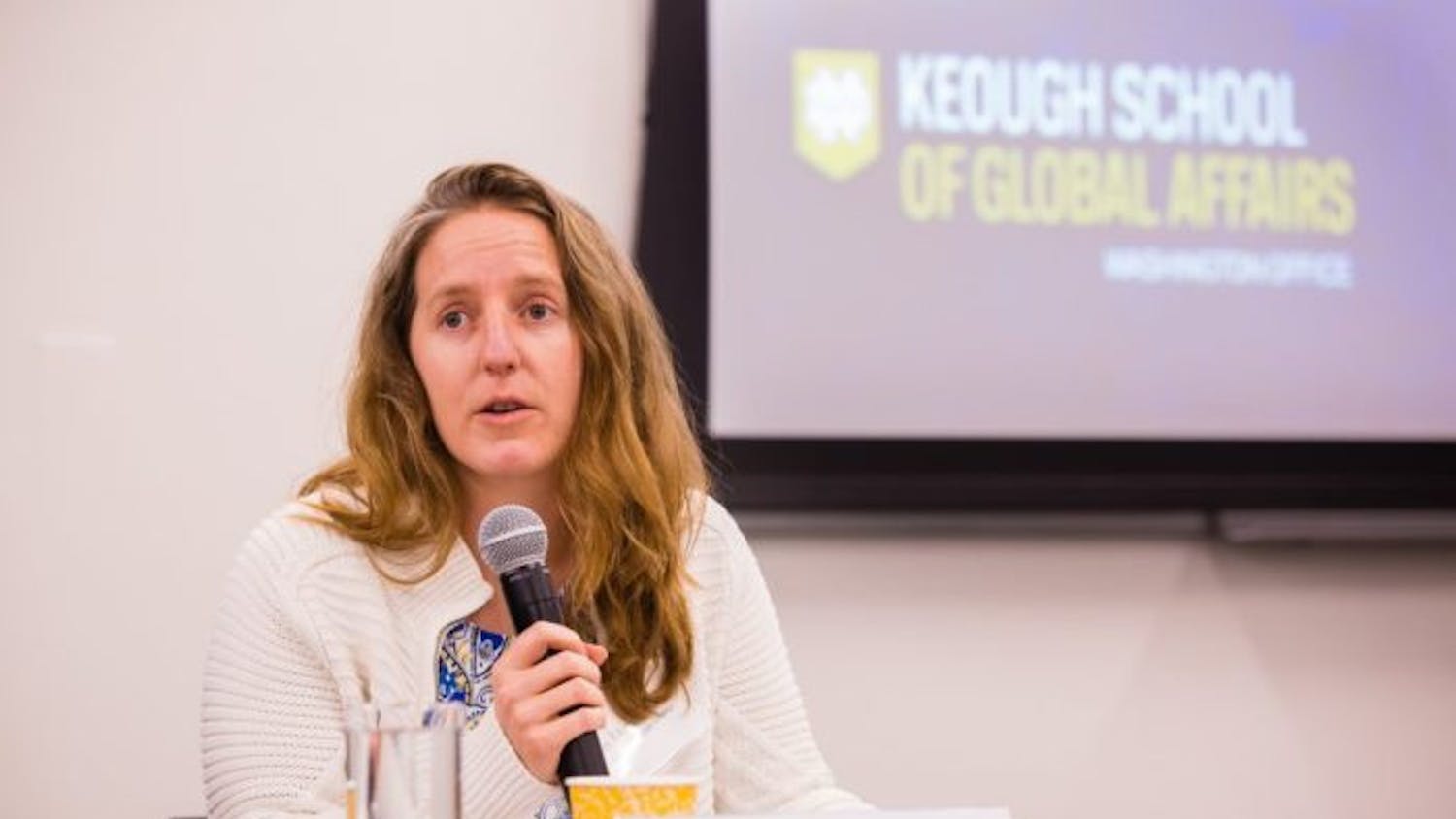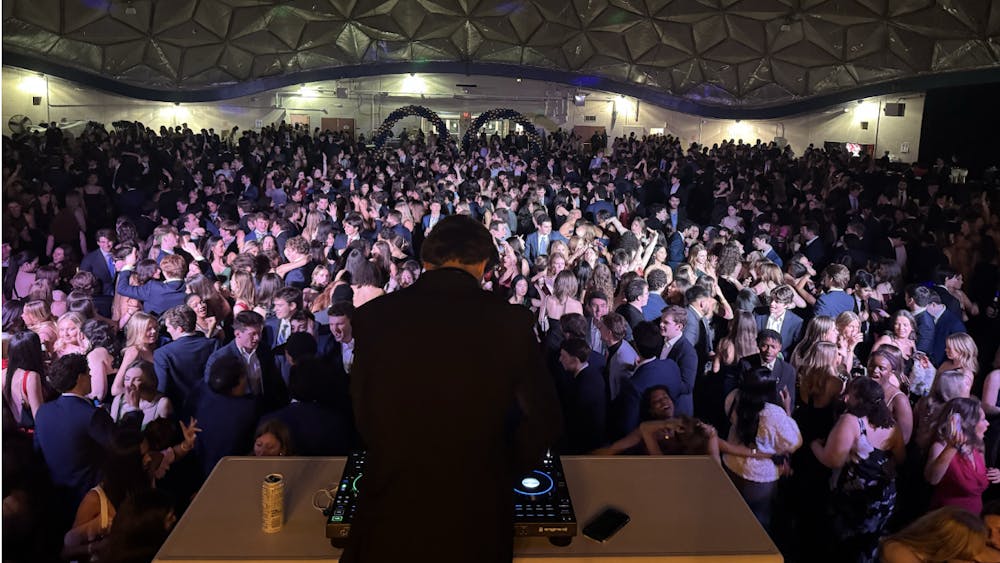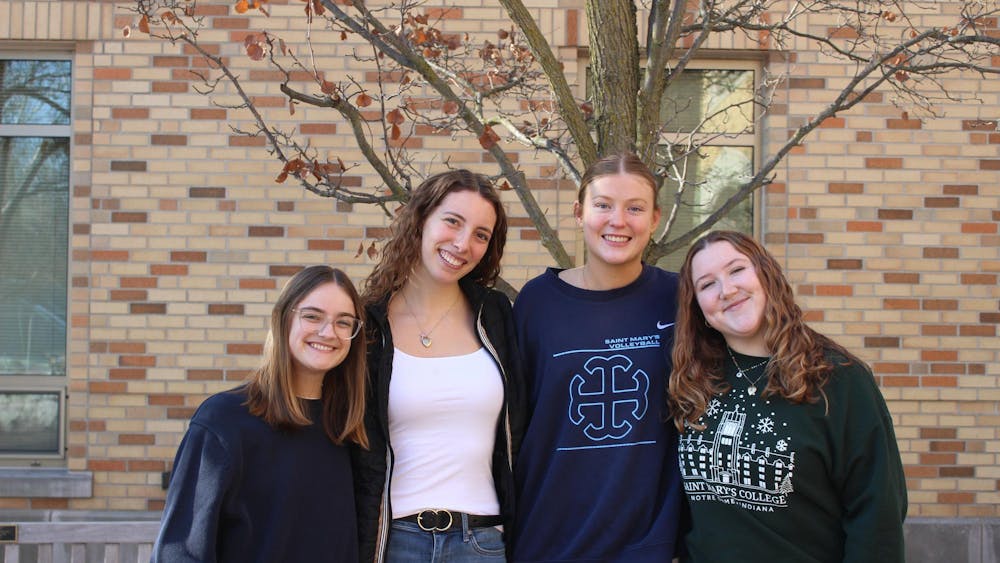In conjunction with the arrival of forty marchers, who stopped at Notre Dame on Saturday as part of the Great March for Climate Action, GreeND hosted a panel discussion and film screening in the Hesburgh Auditorium.
Garrett Blad, president of GreeND, said the movie, titled "Disruption," was great in describing the history and science of climate change.
"It really goes into the interconnectedness of the issue and how the People’s Climate March is really trying to get a broad array of groups involved," he said.
Following the screening of the film, two professors and one marcher discussed the short- and long-term implications of climate change.
“The film is very impressive, in the historical sweep of the view that it’s giving and looking back at previous attempts to engage issues that can really be so punishing ... as well as the attention to the emotional component and how they kind of mobilize the grassroots here to build towards a global movement, which leads to an impressive intersectional approach,” sociology and peace studies professor Ann Mische said.
Saint Mary’s political science professor Sonalini Sapra organized a screening of "Disruption" last week at the College in preparation for this week’s event.
“The focus on not just a climate treaty, but a just climate treaty is really something the documentary seems to emphasize," she said. "And so what does a just climate treaty look like? Who gets to be part of those conversations? I mean, I know that India and China, their leaders, have already said they are not going to come to the climate meetings on Sept. 23 that [United Nations Secretary General] Ban Ki-Moon has organized. So one of my questions is what would a just climate treaty even really look like?”
The Great March for Climate Action began in March, when forty people from all over the United States left Los Angeles, hoping to arrive in Washington, D.C. by November 1st.
“One of the reasons I’m doing this, and I think we’re all doing this, is because climate change really is one of the largest issues facing our world today,” marcher Jimmy Betts said.
Born in South Korea and raised in Nebraska, Betts has walked with the march since it started in Los Angeles and was included as one of the speakers on the panel.
“This is a huge mobilization that will officially last," he said. "But the real work is going to come after the march. That’s where all this uniting is going to really come to this political will, this power that we essentially created, and we have to take it."
All of the marchers shared the similar sentiment of an increasingly pressing need for climate change reform.
“We have to do this as a collective society, it can’t just be two outspoken environmental organizations, that’s way too narrow," he said. "It affects far more people than just environmentalists, but unfortunately that’s sort of how it’s been polarized in the past."
Read More
Trending









